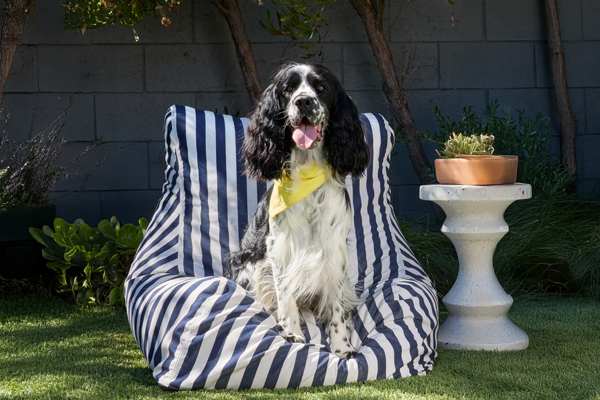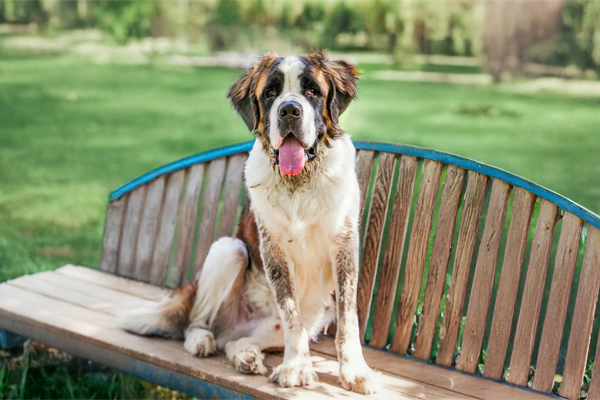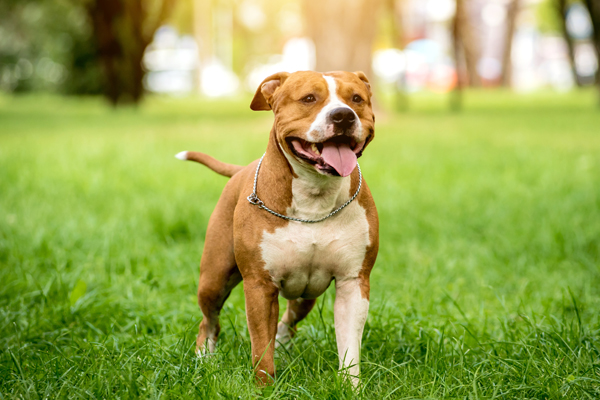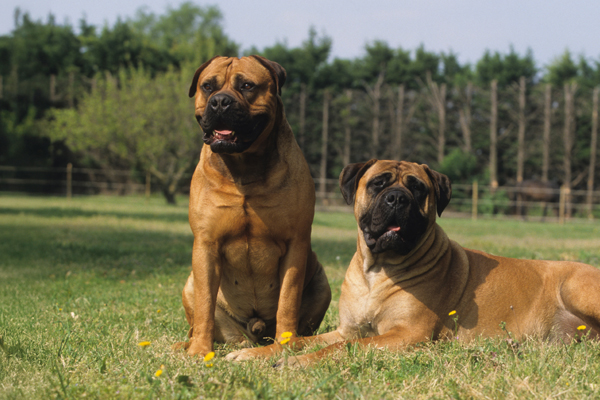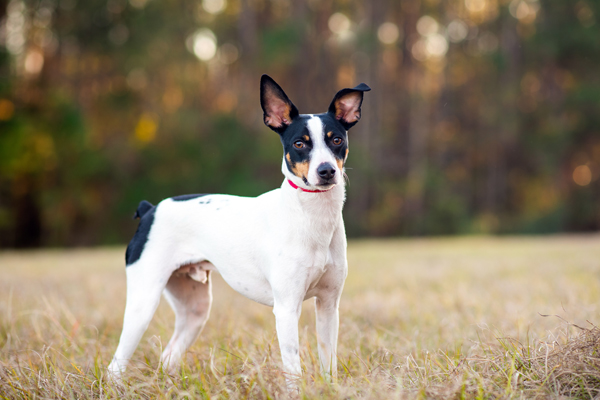Labrador Retriever: Your BFF Furball
After meeting a Labrador Retriever, you’ll quickly realize why they’re the most popular breed year after year—and you’ll also stumble on a new best friend. These dogs typically come in three beautiful colors: black, yellow, or chocolate. They’re deeply affectionate, curiously expressive, and always energetic, begging for another round of fetch (and another … and another!). Labrador Retrievers easily win over hearts, whether from strangers or other dogs, and earn an irreplaceable spot in your family.
At Happy Paws, we’re dedicated to helping all dogs, from purebreds to certified mutts, live their happiest, healthiest lives. We’ve designed our dog supplements to target a range of trouble spots in your dog’s health, including common issues for a Labrador Retriever.
In this article, we’ll explore the history of the quintessential family dog, provide some information and advice on how to care for them, and help you decide which supplements are best for your curious confidant, the Labrador Retriever.
Quick Facts
Origin: Canada
Size: Medium to large
Breed Group: Sporting
Lifespan: 11-13 years
Coat: Medium hair length—weekly grooming recommended
Temperament: Affectionate, determined, adventurous & energetic
Exercise Needs: Labradors are big, high-energy pups. So, they need a ton of exercise to keep them calm, cool, and confident. A Labrador Retriever loves long walks and hikes. But they love swimming most of all.
Training: Most dogs flourish under a standard obedience training program, and Labrador Retrievers are no different. As a focused hunting dog, Labradors can learn commands and signals. But as a domesticated furry family member, Labradors need to be shown the ropes of in-door life. Labrador puppies are known for a stubborn streak; but with the right training, you can transform them into the perfect family companion.
Dog Health: Medium-to-large-sized dogs, like Labrador Retrievers, are susceptible to unique health challenges, like digestive issues, shedding, joint pains, and obesity. We’ll discuss how to address each below.
Happy Paws for a Labrador
Enrich your Labrador Retriever’s health with high-quality, tasty supplements like these!
| Type of Happy Paws Supplement | Best for … |
| Skin & Coat Dog Chews | Strengthening your dog’s coat & dermal health. |
| Dental Dog Chews | Fighting tooth decay & smelly breath. |
| 10-in-1 Multivitamin Dog Chews | Giving your pupper a daily dose of essential vitamins, minerals & other nutrients. |
| Hip & Joint Dog Chews | Soothing common symptoms of joint dysplasia & inflammation. |
| Probiotic Dog Chews | Restoring the healthy bacteria in your dog’s digestive system. |
Popular Supplements for a Labrador
Fun-loving and carefree, a Labrador is a confident, goofy dog that soon becomes a loyal sidekick. Their larger-than-life personalities blossom as puppies and settle in well into their twilight years. Support that little glow by keeping them healthy, happy, and active.
Our high-quality, tail-waggin’ dog supplements use an array of all-natural, organic ingredients to enrich your dog’s physical and mental health, while satisfying their taste buds. Here are a few dog supplements to help you care for your Labrador Retriever.
Skin & Coat Dog Chews: Our Skin & Coat Dog Chews help keep the sheen in your Labrador’s fur. These vegan, chicken-flavored soft chews use a blend of skin-supporting ingredients, like biotin and coconut oil, to restore dermal health and replenish your dog’s coat.
Dental Dog Chews: Like all dogs, Labrador Retrievers are prone to smelly, unpleasant dog breath. Our Dental Dog Chews combine the refreshing aroma of spearmint with an enzyme blend to neutralize dental bacteria and curb stinky breath.
10-in-1 Multivitamin Dog Chews: Our 10-in-1 Multivitamin Dog Chews use multiple essential nutrients to strengthen your dog’s daily health and give them a well-rounded supplement. One vegan, lamb-flavored dog treat introduces ten critical nutrients to keep your dog healthy, happy, and active.
Hip & Joint Dog Chews: Soothe the symptoms of joint dysplasia with our Hip & Joint Dog Chews! Packed with a blend of joint-friendly ingredients, this dog supplement helps reduce inflammation and support joint health, thanks to compounds like glucosamine, chondroitin, and hyaluronic acid.
Probiotic Dog Chews: Made with powerful antioxidants, probiotics, and superfoods, our Probiotic Dog Chews help strengthen your dog’s digestive system, while supporting their gut and bowel health.
Common Health Concerns for a Labrador
Compared to other medium-sized dog breeds, the Labrador Retriever is susceptible to unique health conditions like these:
Obesity: If you’ve ever been around a Labrador, you can attest to the size of the appetite—these dogs always seem to have an empty stomach! While a healthy diet is key to fueling these highly energetic dogs, there may be more at play here. Scientists have found that around 25% of Labrador Retrievers are genetically predisposed to obesity, which can lead to a cascade of health issues. Curb obesity by moderating food intake and giving your Lab daily exercise.
Elbow & Hip Dysplasia: According to the American Kennel Club (AKC), many medium-sized to extra-large dog breeds are susceptible to elbow and hip dysplasia. This issue arises from birth when the bone in a joint is misshapen, causing an awkward fit in your dog’s joints. This defect can often lead to joint pain, osteoarthritis, limping, and trouble standing up.
Digestive Issues: Medium- to large-breed dogs commonly have digestive problems, like bloating. These issues can stem from their diet, lifestyle, or genetics.
Cardiovascular Disease: Because of their size and potential obesity concerns, Labradors can experience cardiovascular problems. So, feeding them a vitamin-rich, nutrient-packed diet is essential to help fortify their heart health.
About the Labrador Retriever
Labrador Retrievers originated from Newfoundland, Canada (also the home of the lovable Newfoundland furball). Over the 19th century, these strong-willed, energized dogs found a niche as waterdogs, thanks to their double coat, webbed feet, and otter-like tails. They’d eagerly dive in to retrieve fish and ducks—and come back with an ear-to-ear smile. Today, the breed has earned a coveted role in many families because of the Labrador’s gentle patience and energetic goofiness. But they still have that retriever instinct, so squirrels beware. And here’s a pro tip: stretch your arm before a game of fetch. You’ll be there for hours. These goofballs don’t have an off switch.
Labrador Retriever Temperament
There are multiple reasons a well-trained Labrador Retriever is the perfect family dog. These dogs are expressive, intelligent, gentle furballs. Plus, they’re oddly personable. Their personalities just spill out of their eyes. They’re relatively low maintenance and deeply affectionate.
With the proper training, Labradors can be comfortable and playful around children, cats, and other dogs. Because of this calm, cool temperament, many guide dogs and service dogs are Labradors. These dogs may have once been the ultimate hunting dog, but now, they’ve solidified their place among the family, certainly earning the moniker of “man’s best friend.”
How to Care for Labrador Retrievers
Labradors are relatively easy to train compared to other breeds, especially for new-time dog owners. They learn fast and are eager to please. But here are a few tips to help keep your pet Labrador Retriever happy, healthy, and lively, from their puppy years and well into their golden years.
Coat Maintenance
The Labrador dog breed is known for their shiny yellow, black, or chocolate coat. But did you know that this is actually a double coat? Because they were once working dogs in subarctic climates, Labrador Retrievers have a waterproof top coat with an insulated, soft-fur second coat. These two layers of hair can lead to a ton of shedding. Keep your Labrador Retriever’s coat clean with weekly brushes and monthly baths.
Outdoor Play
The Labrador breed started in the Great Outdoors, tagging along hunts and diving into lakes, rivers, and ponds. So, their love for the outdoors is innate. Spoil your Labrador Retriever by taking them to the park, on a hike, or on a long nature walk. But good luck trying to get them back in the car.
Obedience Training
The Labrador Retriever is a pretty intelligent dog, so obedience training can help them flaunt that big brain. Plus, training can help wrangle them in during their puppy years. Young Labs are known for a slightly rebellious, teenager-like angst era. Once Labradors are older, obedience training can help keep your pet sharp and engaged throughout the day.
Happy Paws: High-Quality Dog Supplements
Keeping your dog happy, healthy, and active shouldn’t feel like a full-time job. At Happy Paws, we’ve designed our dog treats with the best ingredients and flavors possible (our dogs definitely approve!). We’ve made sure these treats are certified organic, non-GMO, and third-party tested for purity, letting you spoil your dog easily with healthy, tasty dog treats.
FAQ
Is a Labrador a good family dog?
Labradors can be excellent house pets and family dogs, with the proper training. A properly trained Labrador is affectionate, gentle, and patient; but they don’t start off that way. Labrador puppies can be rather rambunctious, rebellious teens. So, early obedience training is key to helping them behave around children, pets, and elderly folk.
Is a Labrador a high-maintenance dog?
Labradors are generally laid-back dogs, not requiring a ton of maintenance. The most significant “high-maintenance” trait they carry is their exercise needs. These dogs are full of life and energetic. So, you’ll need to wrangle in that energy. It’ll help control the chaos in their puppy years.
Do Labradors shed a lot?
The Labrador Retriever sheds year-round. They have a double coat that keeps them warm and dry in wet, cool conditions. So, that double coat means they can shed more than other dogs. But who needs a black sweater anyway?
Do Labradors like to be left alone?
Labradors are pretty independent pups, but they recharge when they’re around you. You can leave them alone for a couple of hours, but don’t be gone long. If you’re going to enjoy the outdoors, your Labrador is the perfect back-seat companion.
How do you give a Labrador health supplements?
You can give your dog a Happy Paws health supplement in several ways. First, we’ve designed these supplements as dog treats, so you can give them to your pupper as a reward for good behavior. Or, you can add it to your dog’s kibble; they make a pretty tasty topper, too.
